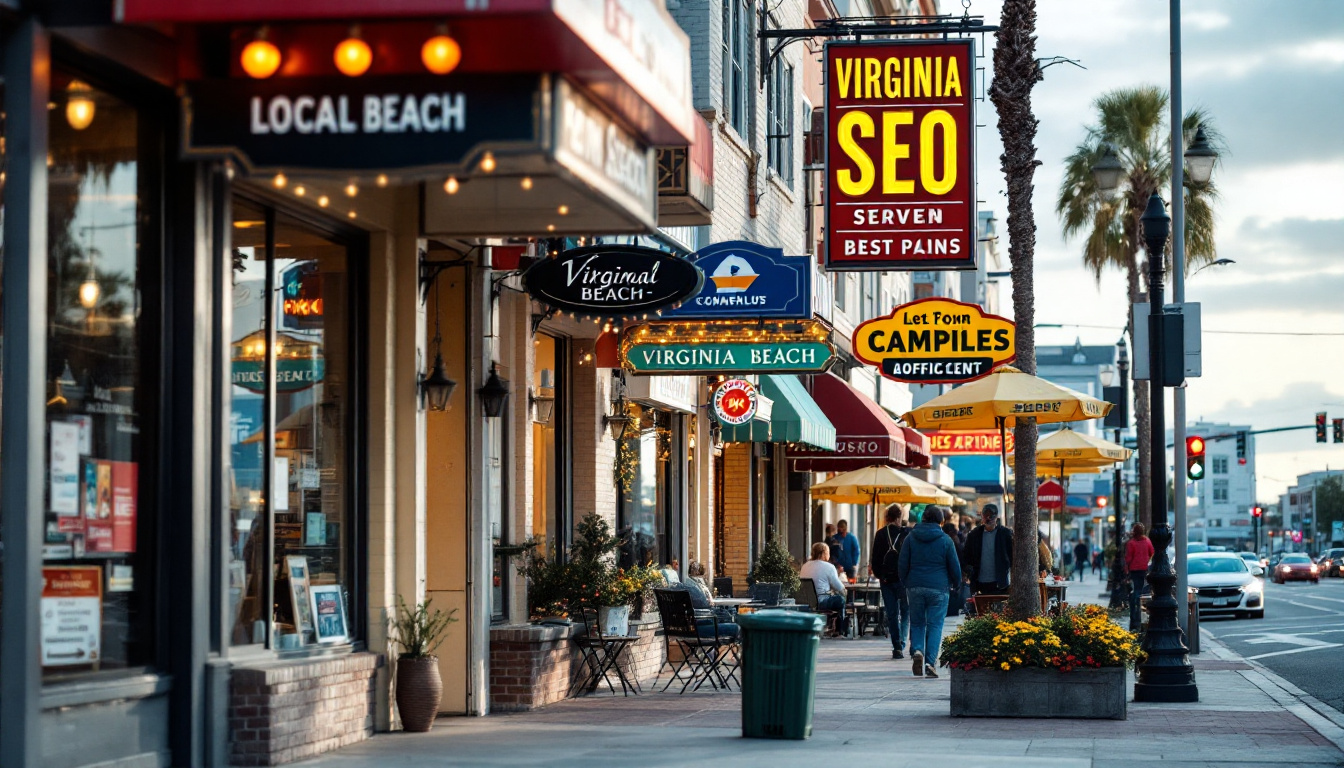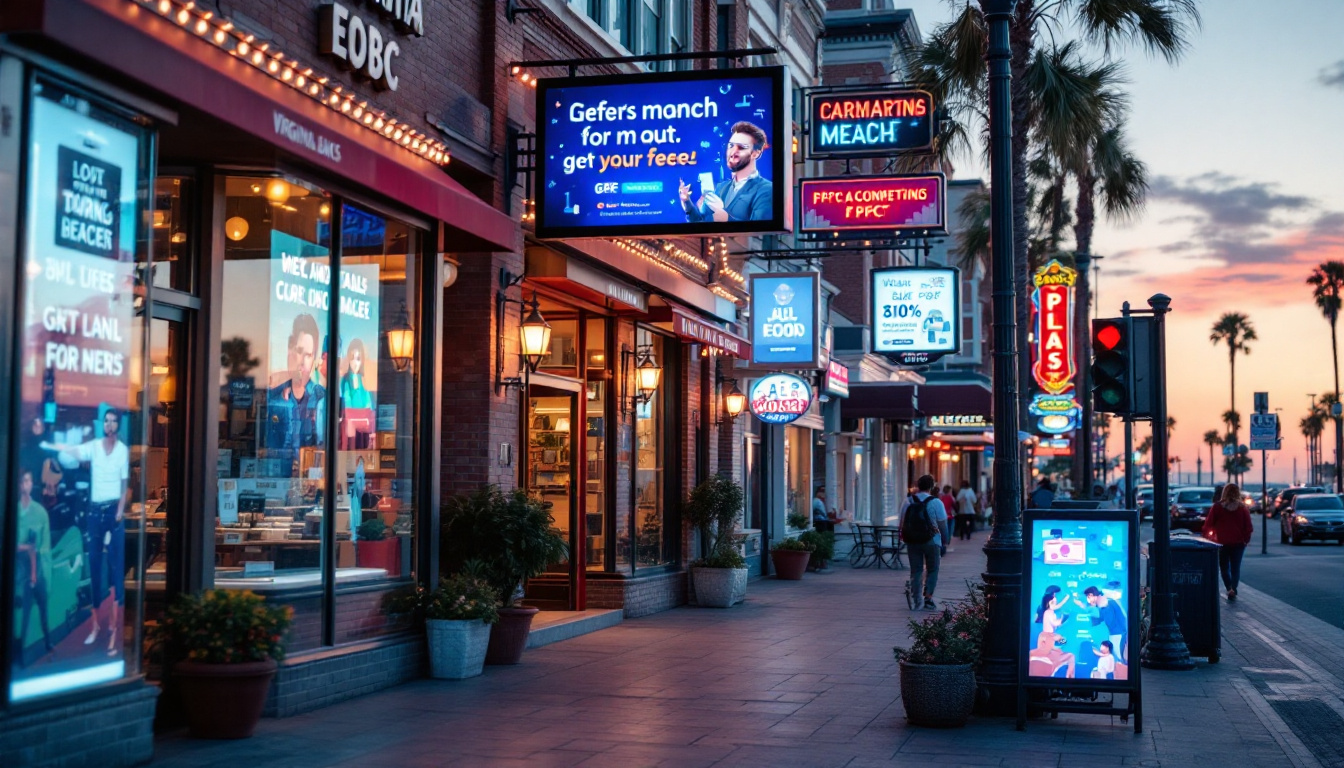Top PPC FAQs Answered for Virginia Beach, VA Businesses

Pay-per-click (PPC) advertising has emerged as a pivotal tool for local businesses in Virginia Beach, VA looking to enhance their online presence. As digital marketing continues to thrive, understanding the fundamentals of PPC can give companies a competitive edge. In this article, we address some of the most frequently asked questions about PPC to provide valuable insights for business owners in the area.
What is PPC and how does it work?
PPC, or pay-per-click advertising, refers to an online marketing strategy where advertisers pay a fee each time their ad is clicked. Essentially, it's a way to buy visits to your site, rather than attempting to “earn” those visits organically. This model is most commonly associated with search engines, where businesses can bid on keywords that are relevant to their products or services.
The process of PPC begins with selecting the right keywords. Advertisers need to choose terms that potential customers are likely to type into search engines. After identifying these keywords, the advertiser creates ad campaigns and sets a budget for how much they are willing to pay per click. Ads are then displayed in search results when users search for those keywords, thus driving targeted traffic to the business's website.
PPC platforms, like Google Ads and Bing Ads, provide advanced tools and analytics to help businesses optimize their campaigns. This includes monitoring performance metrics like click-through rates, conversions, and return on investment (ROI), allowing advertisers to refine their strategies over time.
In addition to keyword selection, advertisers must also focus on crafting compelling ad copy that resonates with their target audience. The effectiveness of an ad can significantly influence its performance, as engaging headlines and persuasive descriptions can lead to higher click-through rates. Moreover, utilizing ad extensions can enhance visibility by providing additional information, such as location, phone numbers, or links to specific pages on the website, making the ad more attractive to potential customers.
Another crucial aspect of PPC is the landing page experience. Once users click on an ad, they are directed to a landing page designed to convert them into customers. A well-optimized landing page should align closely with the ad's messaging, offering a seamless transition and clear calls to action. Factors such as page load speed, mobile responsiveness, and user-friendly design play a significant role in determining whether visitors will complete desired actions, such as making a purchase or signing up for a newsletter.
Why is PPC important for local businesses?
PPC is particularly important for local businesses in Virginia Beach as it offers numerous advantages. First and foremost, it allows businesses to reach a specific audience in their geographic area, driving targeted traffic to their storefronts or websites.
With the increasing use of mobile devices, PPC ads can be designed to target customers who are in close proximity to the business. This means that when someone searches for services or products while in Virginia Beach, local businesses can appear prominently in the search results, often above organic listings.
Additionally, PPC campaigns provide businesses with measurable results. They can track how many people clicked on their ads, how much they spent, and ultimately how many conversions occurred as a result of the campaign. This precise data makes it easier for businesses to allocate their budgets effectively and adjust their strategies in real-time.
Moreover, PPC allows local businesses to compete with larger companies that may have more extensive marketing budgets. By utilizing targeted keywords and location-based strategies, even smaller enterprises can secure a foothold in the local market. This level playing field enables them to showcase their unique offerings and connect with potential customers who are looking for personalized services that larger corporations may overlook.
Furthermore, the flexibility of PPC advertising means that local businesses can quickly adapt their campaigns to align with seasonal trends or special events in Virginia Beach. For instance, a local restaurant can promote a special menu during the summer tourist season or a beachside retail shop can highlight a sale during the annual Neptune Festival. This agility not only enhances visibility but also fosters a sense of community engagement, making customers feel more connected to the local businesses they choose to support.
How to select the best PPC platform?
Selecting the right PPC platform is crucial for maximizing the effectiveness of your advertising efforts. Different platforms offer unique features and cater to varying target audiences. Here’s a brief guide to help you choose the best platform for your business:

- Define your goals: Before choosing a platform, it's essential to understand what you want to achieve. Are you looking for brand awareness, lead generation, or direct sales?
- Identify your target audience: Consider where your audience is most active online. Google Ads might be ideal for search ads, but social media platforms such as Facebook or Instagram could be better for visual campaigns.
- Assess your budget: Some platforms may require a higher initial investment, while others allow you to start with a modest budget. Choose one that aligns with your financial capabilities.
- Explore features: Look for platforms that provide advanced targeting options, analytics, and optimization tools that fit your specific needs.
By carefully considering these factors, local businesses can select a PPC platform that enhances their marketing efforts and fosters growth. Additionally, it is important to stay updated on the latest trends and changes within the PPC landscape. For instance, platforms like Google Ads frequently update their algorithms and features, which can significantly affect ad performance. Engaging with industry blogs, attending webinars, and participating in online forums can provide valuable insights into which platforms are currently yielding the best results for businesses similar to yours.
Moreover, testing and experimentation play a vital role in the selection process. Once you have a shortlist of potential PPC platforms, consider running small-scale campaigns on each to gauge their effectiveness. This hands-on approach allows you to analyze key performance indicators such as click-through rates, conversion rates, and return on ad spend. By comparing these metrics, you can make a more informed decision about which platform aligns best with your marketing objectives and delivers the highest ROI.
What are the costs associated with PPC?
The costs associated with PPC advertising can vary significantly based on several factors, including the chosen platform, competition for keywords, and the overall campaign strategy. Generally, PPC operates on a bidding system, where advertisers set their maximum bid for specific keywords. This dynamic nature of PPC means that costs can fluctuate, making it essential for advertisers to stay informed about market trends and adjust their bids accordingly.
Some of the primary costs include:
- Cost-per-click (CPC): This is the amount you pay each time someone clicks on your ad. CPC can range from a few cents to several dollars, depending on the competitiveness of the keywords. High-demand keywords in lucrative industries, like finance or legal services, often command higher CPCs, which can significantly impact your overall advertising budget.
- Daily or monthly budget: Advertisers usually set limits on how much they are willing to spend daily or per month, which helps to control costs. It's important to regularly review and adjust these budgets based on campaign performance and changing market conditions to ensure optimal return on investment.
- Additional fees: Some platforms may charge fees for premium features, such as enhanced targeting options or special placements. These features can provide valuable insights and allow for more precise audience targeting, but they also add to the overall cost of your PPC campaigns.
Understanding these costs is vital for creating a budget that supports sustainable advertising efforts without sacrificing financial stability. Moreover, it's crucial to consider the potential return on investment (ROI) when planning your PPC strategy. A well-optimized campaign can lead to increased traffic, higher conversion rates, and ultimately, greater revenue. Analyzing metrics such as click-through rates (CTR) and conversion rates can provide deeper insights into the effectiveness of your ads and help in making informed decisions about future spending.
Additionally, advertisers should be aware of the importance of ongoing management and optimization of their PPC campaigns. This includes regularly testing ad copy, adjusting bids, and refining keyword lists to ensure that the ads remain relevant and effective. The landscape of PPC advertising is continually evolving, with new features and tools being introduced frequently. Staying updated with these changes and adapting your strategy accordingly can help maximize your advertising spend and enhance overall campaign performance.
How to measure the success of your PPC campaigns?
Measuring the success of your PPC campaigns involves tracking key performance indicators (KPIs) that reflect how well your ads are performing. Here are some essential metrics to consider:

- Click-through rate (CTR): This metric indicates how often people click on your ad after seeing it. A higher CTR often implies that your ad is relevant to your target audience.
- Conversion rate: Measuring how many visitors take a specific action after clicking on your ad, such as signing up for a newsletter or making a purchase, is crucial for gauging effectiveness.
- Return on investment (ROI): By calculating the ROI, businesses can assess whether their PPC campaigns are generating profit relative to the costs incurred.
- Quality Score: This metric is given by PPC platforms to gauge the quality of keywords, ads, and landing pages. A high-quality score can lead to lower CPCs and better ad placements.
By closely monitoring these metrics, local businesses in Virginia Beach can refine their PPC strategies, ensuring that they achieve optimal results while making the most of their marketing budgets.

As a Google Ads expert, I bring proven expertise in optimizing advertising campaigns to maximize ROI.
I specialize in sharing advanced strategies and targeted tips to refine Google Ads campaign management.
Committed to staying ahead of the latest trends and algorithms, I ensure that my clients receive cutting-edge solutions.
My passion for digital marketing and my ability to interpret data for strategic insights enable me to offer high-level consulting that aims to exceed expectations.









